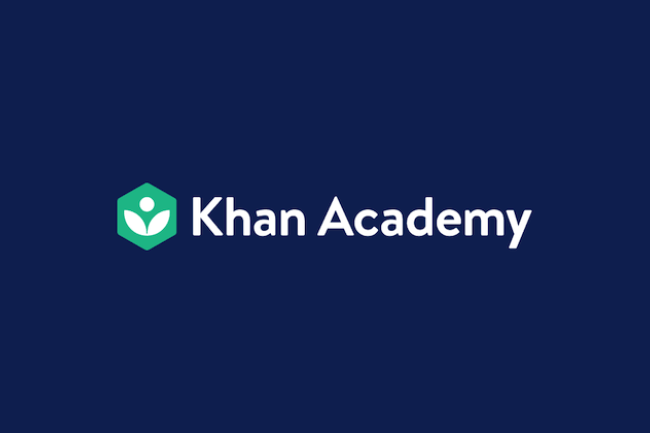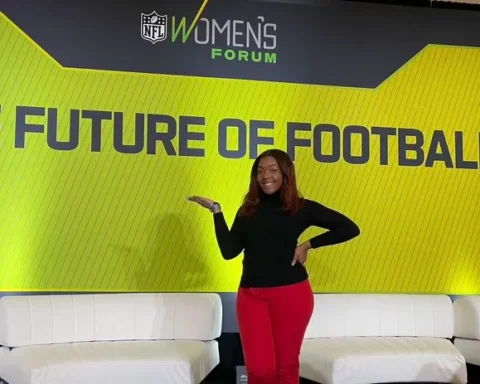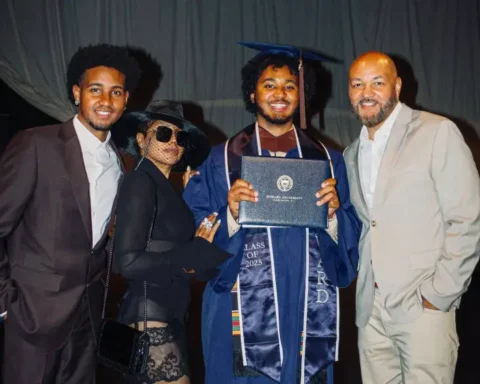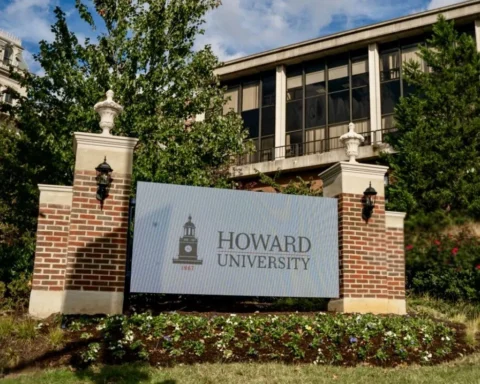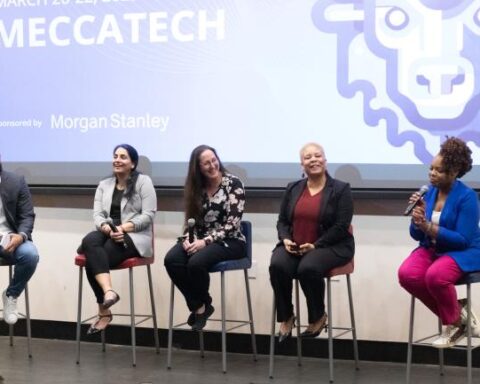By Misha Cornelius
Howard University announced the launch of a credit-bearing college algebra course for high school students, developed in partnership with Khan Academy, and delivered to high schools in historically underserved communities by the National Education Equity Lab. Based on the success of a pilot this past spring, Howard’s College Algebra I is now available to high-achieving high school students whose schools participate in the National Education Equity Lab network. This semester, 11 high schools are offering the inaugural course, giving students the opportunity to master college-level coursework and earn college credits – and confidence.
The effort is rooted in a growing body of research finding that math proficiency often poses a critical barrier to college completion and entry into STEM-related careers, particularly in historically underserved communities. Estimates suggest that half of all college students don’t earn a passing grade in required algebra courses, preventing them from graduating or taking the higher-level math courses that are a gateway to high-earning careers in science, technology, and engineering fields.
“Howard University is happy to partner with Khan Academy in giving high school students the opportunity to advance in college-level math before they even step foot on a college campus,” said Howard University’s president, Dr. Wayne A. I. Frederick. “This early exposure will give students the opportunity to gain the knowledge and confidence in a subject that can be leveraged in any field they choose to pursue.”
Students progress through the course via the Khan Academy platform, meet weekly on zoom with Howard University teaching fellows (undergraduate and graduate students), and take paper-and-pencil midterms and finals from Howard University.
Dr. Bourama Toni, Chair of Howard University’s Department of Mathematics, who helps lead this effort at Howard, said: “The gating effect of math is a concerning, yet solvable problem. This effort will help open doors of opportunity to under-resourced students around the nation who too often are gated out of educational and professional opportunities because they lack the requisite math training, by no fault of their own. We want to empower high school students to pass college algebra, and know that they can take on anything after that.”
“Most students don’t place into college algebra when they go to college, much less get through it,” said Khan Academy founder Sal Khan. “But with support from caring adults and an online learning plan that allows them to move at their own pace, high school students are mastering college-level algebra. What’s more, they’re getting college credit from Howard University.”
The course was developed as part of a national education justice effort led by the National Education Equity Lab that delivers and supports college credit bearing courses from top colleges and universities into teacher-led high school classrooms in underserved high schools at scale, and at no cost to students. Currently, Howard University also partners with the Ed Equity Lab to deliver courses in Criminal Justice and Environmental Studies to high schools across the country. Ed Equity Lab partners with pioneering colleges and universities to deliver and support college credit-bearing courses as part of this national education equity effort including: Howard University, Stanford University, Princeton University, Wesleyan University, Wharton School at University of Pennsylvania, Georgetown University, Cornell University, Brown University, Spelman College, Barnard/Columbia University, Arizona State University, Harvard (Inaugural Pilot Course).
“This effort is about helping the higher education system reach down into the country’s most underserved school districts, to help break down the ‘math barriers’ that too often prevent talented students from pursuing their college and career aspirations,” said Leslie Cornfeld, founder and CEO of National Education Equity Lab. “We are excited to offer this course to the schools in our network,
In the pilot College Algebra program last spring, 79 high school students took the Howard University – Khan Academy College Algebra I course under the guidance of their high school math teachers and teaching fellows from Howard University. With more than 90 percent of students who started the course completing it, over 80 percent of those students passed, earning widely transferable college credits and a transcript from Howard University.
Based on the success of that pilot, this semester the number of students taking the course has doubled. The Lab will open up the course to all interested Title I and Title I eligible high schools for the spring 2023 semester. Participating schools for Fall 2022 include:
- A-Tech High School, New York City, New York
- Fordham High School for the Arts, New York City, New York
- KIPP Newark Collegiate Academy, Newark, New Jersey
- KIPP Newark Lab High School, Newark, New Jersey
- Mastery Charter Schools-Pickett Campus, Philadelphia, Pennsylvania
- Origins High School, New York City, New York
- Paterson Charter School for Science and Technology, Paterson, New Jersey
- South Pointe High School, Phoenix, Arizona
- The High School for Innovation in Advertising and Media, New York City, New York
- Vanguard High School, New York City, New York
- World Academy for Total community Health High School, New York City, New York
Intel and Insight provided support for the pilot’s first year. Intel funded laptop kits for students and teachers. Insight selected, configured and deployed the devices. In addition, students received backpacks and headsets.
“The students in this pilot inspire us,” said Megan Amdahl, Insight senior vice president. “We’re glad to have provided our technology resources and solutions to remove barriers to access and enable them to achieve new heights.”

